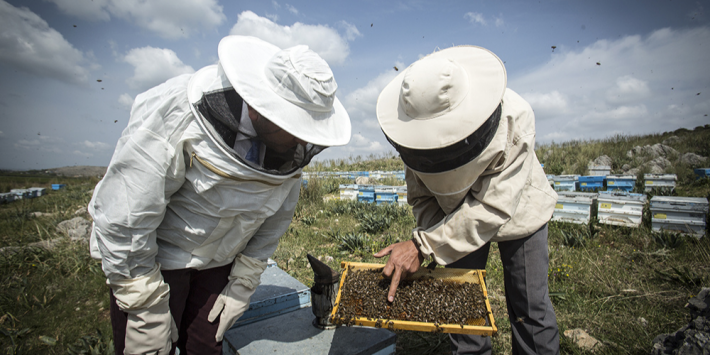Thematic sessions
Find out more about the thematic sessions at BES2023!

Thematic sessions complement the contributed scientific programme of our Annual Meeting by providing a forum for the exploration of particular timely, innovative, and important questions in ecology, and for highlighting the integration of disciplines. They are an important opportunity for members of the community to shape the programme of the Annual Meeting.
Thematic sessions are available live and on-demand to both in-person and virtual attendees of BES2023.
Hot topics in the Anthropocene: Emerging research in fire ecology
Organisers: Kimberley Simpson, University of Sheffield (UK) and Rhodes University (South Africa); Kate Parr, University of Liverpool (UK)

Global records on fire activity have been repeatedly broken over the past decade, as fires are becoming bigger, more frequent and burning in new places. Many questions about the ecological impacts of these human-driven fire regime changes urgently need answering in order to conserve species and ecosystems from fire-induced declines.
Living laboratories – The nexus between research and practice
Organisers: Donncha Madden and Hannah Sheridan, Arup (UK); Shane McGuinness and Craig Bullock, WaterLANDS (Ireland)

Living laboratory projects provide valuable opportunities to gather data for new research and test new approaches. This session shall feature specialists in ecological living laboratory projects and will discuss this concept for harnessing local knowledge, citizen science, novel data gathering and alternative funding.
Risks and opportunities from novel land uses and seascape changes
Organisers: Fabio Carvalho, Lancaster University (UK); Barbara Smith, Coventry University (UK)

Novel land uses and seascapes have emerged globally to accommodate renewable energies in response to climate change, but their environmental, social and economic risks are unclear. This session aims to advance knowledge of the ecological consequences of renewable energy deployment and to explore how green finance instruments can minimise risks and maximise opportunities.
The three-dimensional data revolution in ecology
Organisers: Emily Lines, University of Cambridge (UK); Jesper Erenskjold Moeslund, Aarhus University (Denmark)

High resolution remote sensing from close-range sensors can capture three-dimensional structure of ecosystems in detail never before possible. This session will explore the data science approaches needed to process these data, and the new ecological insights they allow, including on individual tree form, canopy interactions and three-dimensional habitat quality.
On behalf of the session organisers, we would like to thank the Journal of Ecology for their support of this session.
New perspectives on plant-people-pollinator interactions in cities
Organisers: Katherine Baldock, Northumbria University (UK); Joan Casanelles-Abelles, EAWAG (Switzerland); Monika Egerer, Technical University of Munich (Germany)

Cities provide a unique context to study the interplay between pollinators, plants, and people under diverse socio-ecological conditions. In cities, humans and their attitudes, preferences, and values, as well as environmental factors can influence pollinators. This session explores how a holistic approach encompassing ecological and social perspectives is necessary for effective urban pollinator conservation.
Beyond green and blue: Biodiversity as a health resource
Organisers:Aletta Bonn, UFZ, FSU Jena and iDiv (Germany); Rachel Oh, UFZ and iDiv (Germany)

Biodiversity provides the foundation for human health and well-being. This session will provide insight on the biodiversity-health pathways across different cultural settings. Understanding these linkages can inform the design of public health interventions such as nature-based social prescribing programmes, as trialed in different countries.
Regenerative agriculture – a win-win approach for food security and environmental sustainability?
Organisers: Daniela Russi, BES (UK); Nicola Randall, Harper Adams University (UK)

This session will discuss what regenerative agriculture is and its potential benefits and challenges in terms of ecosystem services such as soil health, carbon storage and food production. It will also consider its social and economic impacts, and how agri-environment measures may be used to encourage more regenerative agricultural practices.
Equity in international ecological research
Organisers: Yadvinder Malhi, University of Oxford (UK); Karen Devine, BES (UK)

Inequity in international research is well understood, as are many of the solutions and the systems that act as barriers to those solutions. This session will focus on showcasing good practice and cover how the ways in which we design, fund, and publish ecological research internationally are beginning to change and must continue to do so to reflect the voices of all ecologists.
On behalf of the session organisers, we would like to thank the Journal of Applied Ecology for their support of this session.
Like what we stand for?
Support our mission and help develop the next generation of ecologists by donating to the British Ecological Society.